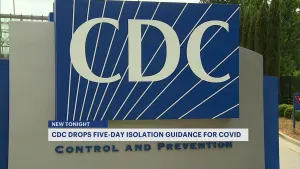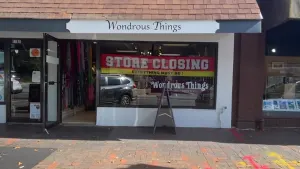More Stories
Hospitals are struggling to keep up staffing levels amid recent spikes in COVID-19-related hospitalizations and an exodus of nurses and other health care workers.
Shelly Mount is a nurse at Virtua Memorial Hospital. She says that she wishes everyone could go to work with her to see what she sees.
“I’ve seen many people crying. You take it for so long. With the mask and all the PPE, all you see is their eyes and you can see it in their eyes,” Mount says.
Banita Herndon is an emergency room nurse at University Hospital in Newark. She is worried about how they will handle the latest crush of patients amid a staff shortage and crisis levels of burnout.
“I’ve been a nurse for 25 years and, trust me, I’ve never seen anything like this. These last two years, I’ve never seen anything like this in my whole career of nursing,” Herndon says.
In a week when the number of hospitalized COVID-19 patients in New Jersey rose to their highest levels since May 2020, deaths topped 100 for the first time in 10 months. The stress and trauma that nurses and other front-line workers is back in full force.
When asked how the nurses are coping, Mount responded, “They’re not. I think it’s just building and building and building.”
With the latest wave, the stressful long days in layers of PPE are compounded by the struggle to fend off frustration because so many hospitalized patients are unvaccinated. And staffing shortages are stretching the staff far thinner than during the first wave of the pandemic.
In October, even before the Omicron wave, a Morning Consult poll of 1,000 health care workers nationwide found that 18% of health care workers have quit their jobs and 31% have considered leaving.
To Mount, who like Herndon, heads her local chapter of Health Professionals and Allied Employees – the largest health care worker union in the state, the poll numbers seem low. Both have seen many older colleagues retire. Younger nurses have left to take lucrative jobs as temporary contract workers or travel nurses as their expertise becomes more in demand nationwide.
“These past few weeks the shortage of nursing is really the brunt of it all. And the long wait times. We don’t have enough staffing to accommodate taking care of all these patients,” says Herndon.
Many nurses and other health care workers say that while the crisis may not feel real to the public, it's all too real in the places they work every day.
“I dreaded waking up this morning because I knew I was going to get so many texts from people who are already at the brink,” says Mount.
Compared to that first wave of COVID-19, when the world was filled with parades and concerts, signs and tributes to front-line heroes, things are just as rough and not much has changed except that so much of the cheering has stopped.
More from News 12
0:22

Cold Spring Village Hall closed due to COVID-19 surge and staff shortages

Hometown Heroes in the Hudson Valley
1:28

Medical experts recommend to still take precautions following CDC's revised COVID isolation guidelines
1:52

Judge: 3 men convicted in COVID-19 relief aid fraud
1:47

Wondrous Things store in Briarcliff Manor to close after 34 years; everything 25% off
0:28
